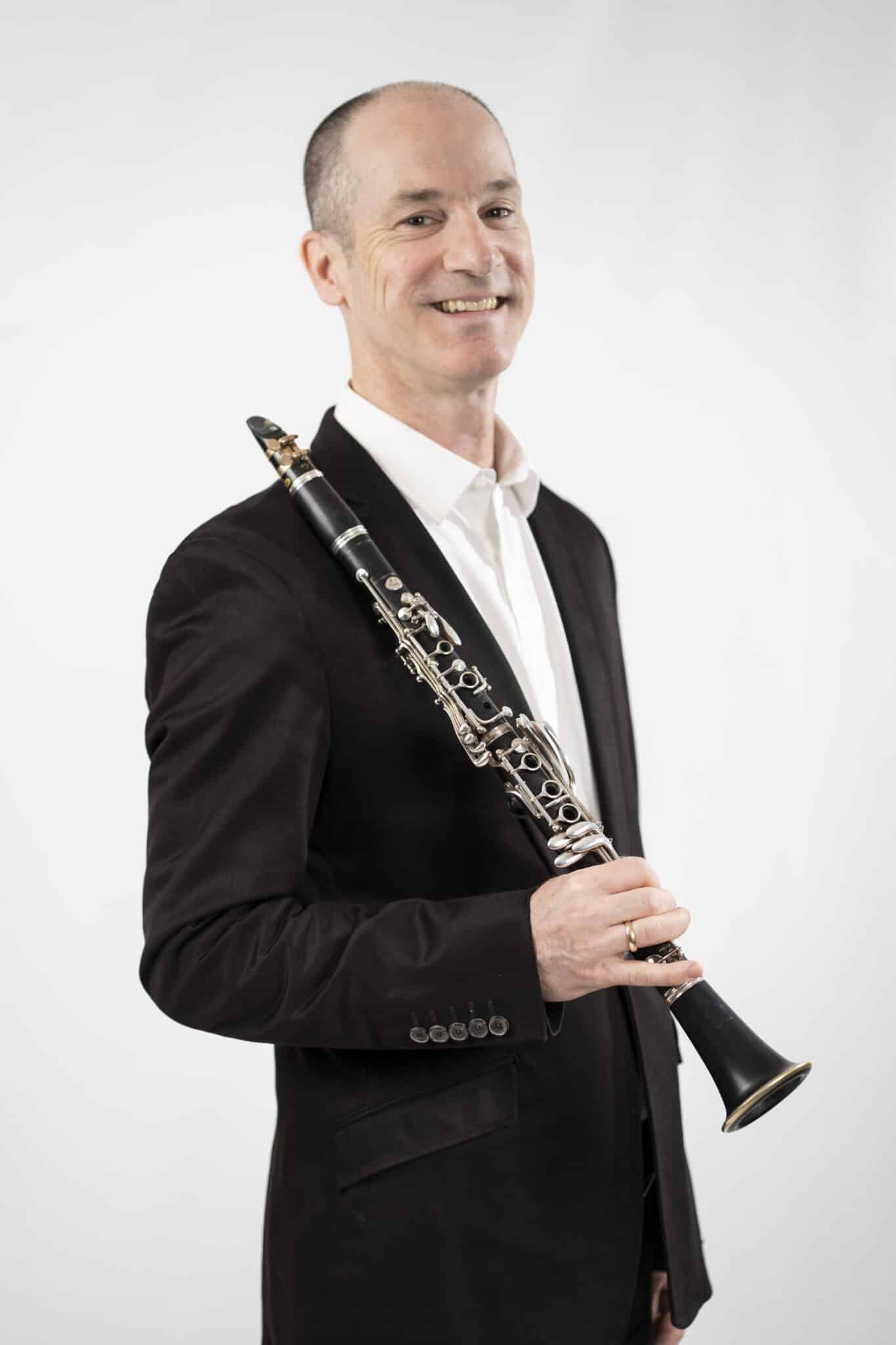Third and Utility Clarinet and Bass Clarinet
John Klinghammer

Third and Utility and Bass Clarinetist with the Kansas City Symphony since 2017, John Klinghammer has also served as acting Associate Principal/E-flat Clarinet for the Kansas City Symphony during the 2014-15 and 2016-17 seasons, acting Third/Bass Clarinet for the 2015-16 season, and from 2001-2014 had been Assistant Principal/E-flat Clarinet with the Omaha Symphony. Before arriving in Omaha, he served a one-year stint as 2nd/Bass clarinet with the Jacksonville Symphony Orchestra. He has also been Principal Clarinet of the Des Moines Symphony, bass clarinetist with the Britt Festival Orchestra, and a member of the National Repertory Orchestra. As a chamber musician, John has appeared with the Breckenridge Music Festival, Omaha Chamber Music Society, Vesper Concerts, Tuesday Musical, Monument Piano Trio, Analog Arts Ensemble, Shir Ami, Eko Nova, on the Kansas Symphony’s Happy Hour series and with Art of Elan. John received his Bachelor’s degree from the University of Oregon, and Master’s and Doctorate degrees from the University of Southern California Thornton School of Music, where he became a member of the USC Scholarship Woodwind Quintet. He spent a year as principal clarinet of the YMF Debut Orchestra of Los Angeles, and in 2000 performed the Copland Clarinet Concerto with that orchestra. John has given master classes and recitals at universities across the country, and has been on faculty at the University of South Dakota and the College of Saint Mary. He helped create the Eko Nova new music series in Omaha, and served as its first artistic director. He has also served as a staff conductor with the Omaha Symphony, helping to create and lead some of the orchestra’s many nationally respected educational programs. His many wonderful teachers include Cindi Bartels, Dr. Wayne Bennett, Michael Anderson, Ted Oien, Mitchell Lurie, Michele Zukovsky, and the incomparable Yehuda Gilad. He lives in Brookside with his wife, Kansas City Symphony cellist and budding milliner Maria Crosby, and their son Jack.
Peter and the Wolf is on of the first pieces of classical music that I loved as a kid…it’s a great piece of music and also a great way to learn about the instruments of the orchestra. I also love Benjamin Britten’s Young Person’s guide to the Orchestra, and you really can’t go wrong with Beethoven’s 5th.
Oh, I don’t know. Everything is challenging in different ways. There are modern pieces that stretch the limits of what we as humans can manage from a technical standpoint, but then playing the perfect, elegant, singing phrase in a Mozart concerto is extremely challenging in its own right.
I was born and raised in Eugene, Oregon.
I became a member in 2017, but had been performing with the Kansas City Symphony as a full-time substitute since 2014.
Winning the audition for this position! I have auditioned for the Kansas City Symphony at least 6 times in my career, beginning all the way back in the fall of 2000. The competition is so fierce, and it doesn’t get easier as you get older, so the fact that I was able to continue learning and improving despite a lot of rejection and setbacks is something of which I am very proud.
It’s great. 🙂
There are so many that I love, including Debussy, Prokofiev, Brahms, Mozart, Bartok, Mahler, Britten, Barber, and I could go on and on…but the greatest and most inspiring for me will always be Beethoven.
The guest soloists we have with the Kansas City Symphony are some of the most incredible musicians in the world, and getting to share the stage with them provides a ton of inspiration on a weekly basis. I also very much enjoy the Berlin Philharmonic’s Digital Concert Hall, and watch it as often as I can to draw inspiration and ideas.
I was a late bloomer, and was fearful of committing myself wholeheartedly to pursuing music as a profession, but I really loved band in high school and initially majored in Music Education when I started my undergraduate work because I thought I would really enjoy being a band director.
My practice regimen varies depending on my schedule and what music I am in the midst of preparing. I divide my practice time between playing warm-ups, scales, and technical exercises to keep my playing in tip top shape, and preparing music for the orchestra and anything else that might be going on in my musical life. But I also have to divide time between the clarinet and the bass clarinet, which is tricky as each instrument requires a different technical approach…kind of like if you were competing in the Olympics in the 200 meter dash and the long jump. Making sure I keep my skills on both instruments at a high level requires allotting my practice time thoughtfully and carefully.